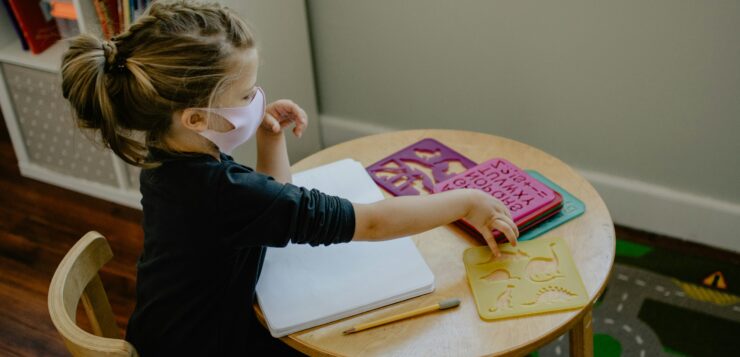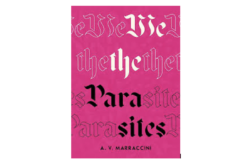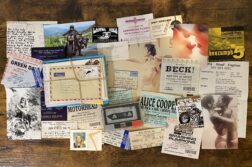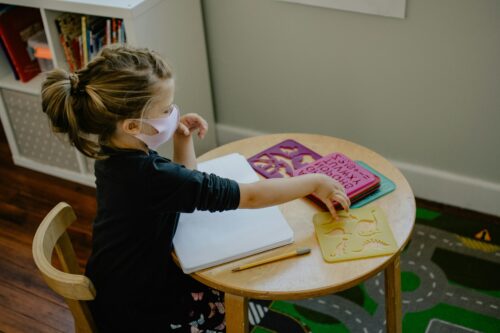
Where are you in this book? Why are you writing this now? These two questions from my dear friend and poetry buddy, Jennifer Martelli, came in response to the first draft of my new collection, Transitory (BOA Editions, Ltd, 2023). In its first iteration, it was a collection of documentary epistolary poems, elegies for 46 trans and gender nonconforming people murdered in 2020. As it stood, there was too much distance in the collection between me and my subjects. Those two questions did more than deepen and expand the book. They moved me from the outside as an observer to the inside, as a participant. They began a long overdue process of redefining my understanding of my gender.
To explicate this shift, I have to take you with me back in time. I came out formally in the summer of 1976, before the start of my junior year in college. I had just turned 21. What prompted this revelation was that I fell in love with a young woman, who was also my co-worker. I’ll refer to her here as ‘D.’ I use the word woman to indicate here a person assigned female at birth (AFAB). It’s been many decades since we knew each other, so I have no idea how she identifies now. At the time, she was a rangy, expansive personality. My mother sensed the ways D was different, butch, queer. And she confronted me one Sunday afternoon about this person and my seeming disinterest in men, pressuring me to confess my queerness. I’d never kept a secret from my parents; it was not part of our family culture. My mother’s response, to my relief (because of her honesty), was: I’m happy you feel better now that you’ve ruined your family. I now have a whole new manuscript unpacking the role of family and community in shaming and shaping my emergent sexual and gender expression.
I say I came out formally at that time because I had long since come out to myself one summer afternoon in elementary school while riding my bike. I can still see the scene as if it were yesterday: The purple bike with its chopper handlebars and white banana seat. The sidewalk pushed up by street-side trees that threw the shade where I stopped, bike between my bare thighs when I had this thought: I’ll probably be a homosexual when I grow up. Those exact words. Where did they come from?
What I’ve always known is that I’ve never identified as female. Early in my life, this was just how I was. In my mind, I was a boy. My best friend was a boy. I wanted to be a boy. Over time, I came to believe that this wasn’t okay; it was, in fact, shameful. As I grew closer to puberty it was as if everyone I knew— friends, neighbors, and family— began to criticize me, to shame me for how I was. “If you don’t stop wanting to be a boy, you’ll turn into one,” they would say. As if! But in the messages was the implicit assumption that I shouldn’t want that.
All the poems in my new manuscript unpack the unfolding that came from Jenn’s questions. The pandemic coincided for me with an increased awareness of new ways to express my gender identity. My partner’s youngest adult child who has identified as trans feminine for years began using they/them pronouns, which I — the old, retired English prof that I was — found challenging to understand. It brought up a number of conversations with my partner about our own gender identities. Even as I have always known myself otherwise, I thought I was cisgender and Queer.
It was a group of sixth graders at the local middle school who really brought home to me the realization of being nonbinary. For the past number of years, I’ve taught poetry in the local school district. Post-pandemic, there was a new teacher, and a cohort that I had known when they were all kindergarteners at a private elementary school where I worked. Like many of his colleagues, the new teacher didn’t have much familiarity with contemporary poets and poetry, and was assigning a project to study a poet and write some poems and an essay on them. He suggested having the students search on Google. I had an immediate and powerful fear response at this suggestion that made me confront how much homophobia and shame I had experienced as a public-school teacher. I was afraid that kids would find Queer poets and poetry and that parents would complain. I would get in trouble!
Clearly, I had some wounds around this to work through. His response was “my kids are all over that! A bunch of them use they/them pronouns.” I was like, “What??” So, into the sixth grade class I went, and there they were, about half a dozen kids of no discernible gender identity, many still wearing masks . I recognized the half faces I saw, and one had a new androgynous name. One of the students had chosen me as their contemporary poet to study, and read all the poems from Transitory that were then available online. I had to squelch my worry about potential fallout from their reading. Needless to say, the sky didn’t fall.
Slowly, over time, I dug in more deeply—it’s easier for me to express this in poems—to the acceptance that I was nonbinary, not male, not female, but both/and. Along with this investigation into revealing and relishing my gender identity, I was also wondering more deeply about my childhood. I grew up in a suburb in southern New Jersey where kids were having a lot of sex. It seemed to me that everyone knew it—among kids at least. I remember hearing that someone’s mom caught two boys “playing with each other” under a picnic table. The one boy became an outcast, though from all visible indications was heterosexual as an adult. There was sex in the bushes, sex at the off-season auction house, in someone’s old playhouse, in basements, closets . . . I thought this was normal.
Still, my own behavior nagged at me. Beneath the sense that what happened was normal back then was the feeling that it was all a kind of abuse, sexualized childhoods that seemed to go beyond the idea that kids will “play doctor.” It felt creepy to me, predatory. A deep psilocybin journey later, I recovered a preverbal experience of sexual abuse that connected the dots, how I behaved as a kid and my adult sexual expression. After that release, I was able to drop more fully into recovering my original knowing of myself as a nonbinary trans masculine person in the language that has become available to us today.
When I came out in the 1970s, the language was limited, and the concept of “Gay Pride” was new. Women who were sexually attracted to other women were Lesbians. Men who were sexually attracted to other men were Gay. And there were bisexuals. And drag queens. Underneath this limitation was a strong life force gestating. As we have continued to refine who we are, to claim our place in US culture, as we fight for brothers and sisters living under the worst anti-LGBTQIA sanctions, here and abroad, we blossom. We will name ourselves in the fullness of new language: nonbinary, transgender, trans masculine, and trans feminine, pansexual, asexual, aromantic, using they/them/ze/zer pronouns, amongst others. As I say in one of my poems from Transitory, “No one can say a life is not right.” We have room to expand, to live and love as freely as we are moved, and no one can make us wrong.
For me, poetry is a pathway. It leads me to unknown places where there is so much to be discovered. Poetry is an act of love, a marriage of language and feeling to produce something beyond those two ingredients. What keeps poetry alive for me is this quest to understand the world and myself, to shine a light on what’s been overshadowed, to extricate what’s been buried. I am the instrument through which revelation comes. To paraphrase a recent essay by Kiki Petrosino in Poetry, my job is to enter my poems dressed as a pilgrim, not a tractor. The way will always be revealed.
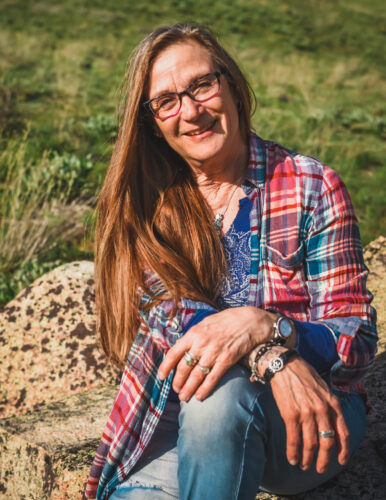 Subhaga Crystal Bacon (they/them) is the author of four collections of poetry including most recently the Isabella Gardner Award-winning Transitory (2023), from BOA Editions, a finalist for a Lambda Literary Award for Transgender Poetry in 2024, and Surrender of Water in Hidden Places (2023), winner of the Red Flag Poetry Chapbook Prize, due out in a second edition in the summer of 2024. They are a teaching artist in schools and libraries as well as working with private students individually and in groups. A Queer elder, they live in rural north central Washington on unceded Methow land.
Subhaga Crystal Bacon (they/them) is the author of four collections of poetry including most recently the Isabella Gardner Award-winning Transitory (2023), from BOA Editions, a finalist for a Lambda Literary Award for Transgender Poetry in 2024, and Surrender of Water in Hidden Places (2023), winner of the Red Flag Poetry Chapbook Prize, due out in a second edition in the summer of 2024. They are a teaching artist in schools and libraries as well as working with private students individually and in groups. A Queer elder, they live in rural north central Washington on unceded Methow land.

